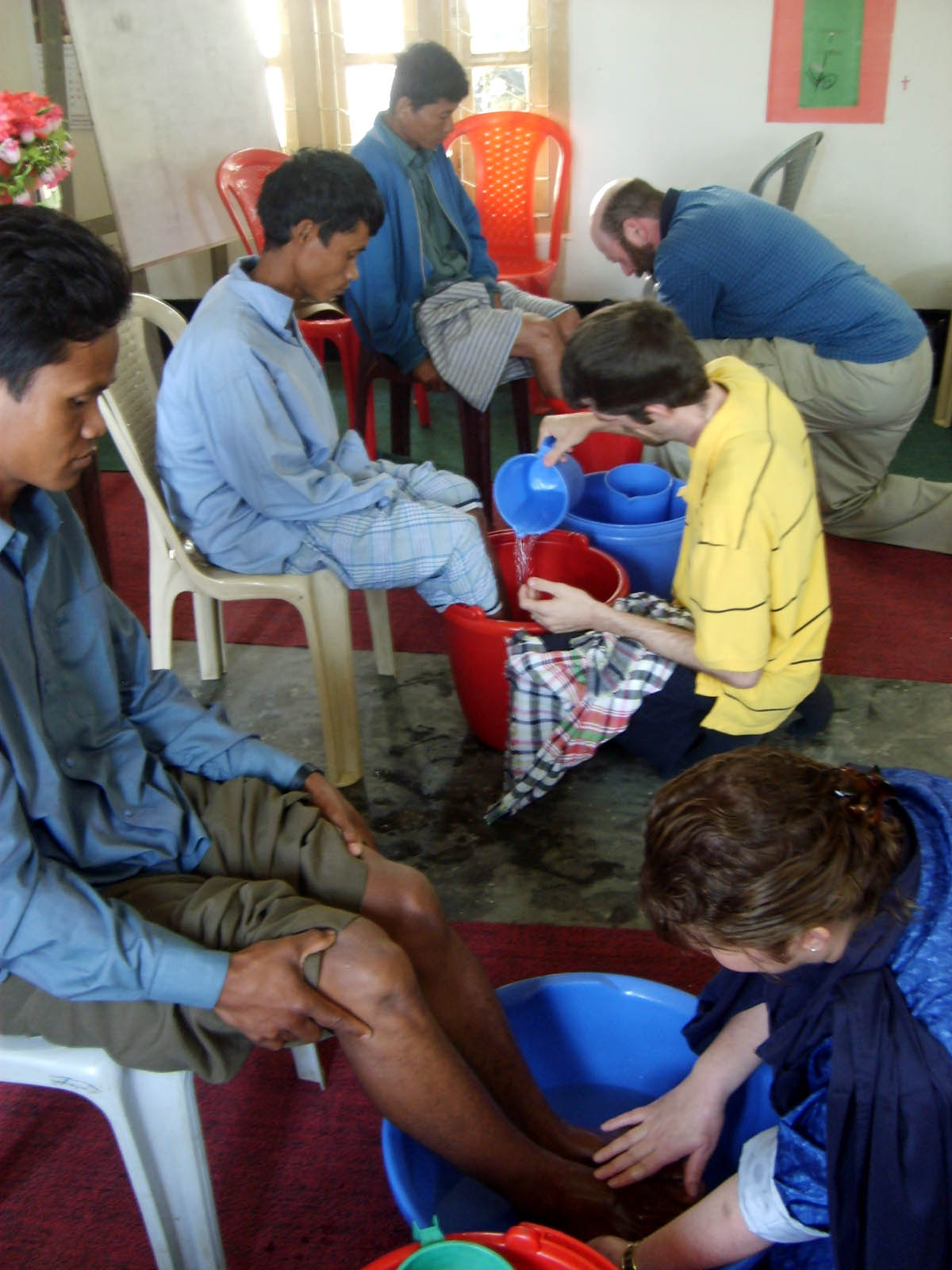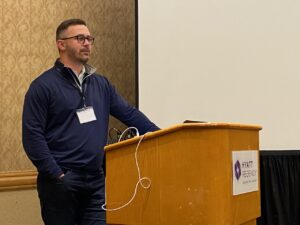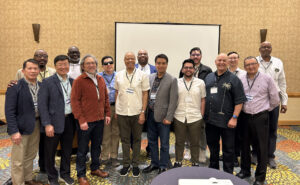
CHITTAGONG, Bangladesh (BP)–Buddhist extremists detained eight Chakma Christians, members of a Baptist church in the Chittagong Hill Tracts of Bangladesh, for four days in August.
The extremists held the men — a pastor, church secretary, village leader and five church members — captive in a Buddhist temple to attempt to force them to return to Buddhism, international Christians Grady and Josette Lindem* reported.
During their captivity, the Buddhist extremists forced the men to adopt a Buddhist lifestyle and worship. The Christian believers had to wear Buddhist robes, shave their heads, bow down before a statue of Buddha and clean the temple, the Lindems said. The extremists threatened the believers with severe beatings and even death if they tried to escape.
The men’s wives had orders to bring food twice a day, the Lindems said. The extremists threatened the women with severe punishment or death if they refused to comply with their requirements of showing honor to Buddha. The women had to first bow down to a statue of Buddha, present food to the statue and give food to the Buddhist priests before they were allowed to give food to their husbands.
The Christians, detained Aug. 23, originally were told they would be confined to the temple for seven to 15 days, but after four days in captivity the men were released under orders that they remain Buddhist.
“They are not allowed to pray to Jesus nor read Bibles, but they say they are still Christian in their hearts,” Josette Lindem said.
Both the extremists and the Christians are Chakmas. Although most Chakmas are Buddhists, about 3,000 Chakmas are evangelical Christians, said Burt Galvin*, who for several years served among tribal peoples in Bangladesh.
Recently, 10 new Chakma churches began and about 300 Chakmas professed their faith in Jesus, the Lindems said.
The Chakma people group is concentrated in the Chittagong Hill Tracts, an area that was specifically reserved for indigenous people groups in southeastern Bangladesh during British colonization. The Chakma people are among many tribal people groups who inhabit the area.
Many Chakmas feel they are losing their national identity with the migration of Bangladeshi Muslims into the tribal lands, the Lindems said.
When British India was partitioned in 1947, the Chittagong Hill Tracts (CHT) became part of East Pakistan. Prior to East Pakistan winning its independence from West Pakistan to become the country of Bangladesh in 1971, the Pakistani government allowed Muslims to migrate to the CHT, which previously had been protected for tribal peoples, Grady Lindem said.
At that point, the tribal people in the hill tracts lost the autonomy or recognition they previously had. This sparked guerrilla warfare and the two major political parties in the area fought the resettlement, the United People’s Democratic Front (UPDF) and the United People’s Party of the Chittagong Hill Tracts.
The government signed a truce in 1997, but many tribal people still feel the government has not upheld its end of the deal, said Finn Aurora*, an agricultural specialist who works with tribal groups in the hill tracts.
“The stories of persecution you’re reading about in the Bible and studying in Sunday School lessons isn’t just the history of Christianity. I just left speaking to some people who are living that,” Aurora said he told his home church during a recent visit to the United States.
In the past several months, persecution of Chakma believers has increased, the Lindems said.
“At times, when violence arises between the Bengalis [Bangladeshi Muslims] and UPDF over land disputes, the Chakma Christians are caught in the crossfire,” Grady Lindem said. “The extremists do not feel that the Christians are actively supporting their goals of preserving the Chakma society, since Christians are primarily focused on sharing the Gospel.”
The same extremist group that held the eight Chakma Christians captive in August took three Chakma Christians captive in April, Aurora said. The men, including a local pastor, were forced to don monk robes, worship Buddha and shave their heads.
“I appeal [to] all brothers and sisters in Christ please do something…. Otherwise all Chakma believers have to return to Buddhist,” Charbak Roy*, a pastor in the area, wrote to prayer supporters during the April imprisonment of the three believers. “I believe Almighty God [is] with them, but as brothers in Christ we should do according [to] our talent.”
Pastor Balendra Sengupta*, who was severely beaten during his nearly month-long detention in April, went into hiding after his release. The Buddhist extremists have threatened him with severe punishment or death if he returns, Grady Lindem said.
During the April detentions, the extremists issued an ultimatum to Christians. They are first given one month to renounce Christianity and return to Buddhism, the Lindems explained. Then the extremists give a second warning with 15 more days to recant. At the end of the 15 days, Christians are given another month with a final warning.
“If they do not return to Buddhism, there will be serious consequences and possibly death,” Grady Lindem said. “Christians who have the money and means flee their homes at this point.”
Buddhist extremists have seized and destroyed Bibles of the Chakma Christians in the area and have forbidden Christians to read the Bible and pray, the Lindems said. Christians are not allowed to enter Buddhist villages or use bridges, ferries or roads in the area, and the names of the Chakma Christians’ children are on a blacklist that prevents them from attending school.
Christians in the area are not allowed to buy food or sell crops they’ve harvested, the Lindems said. Buddhist merchants are forbidden from selling to Christians, and the fine is about $140.
“Only when the Chakma Christians appear outwardly as Buddhists in their dress and do not openly pray, read the Bible or evangelize can they peacefully live in their villages and the children attend school,” Grady Lindem said.
“Police and army view the situation as a local internal problem within the Chakma people that does not impact the Muslim people,” he said. “If the Chakma Christians seek help from the courts or the police, the extremists become very angry and the persecution becomes worse.”
Chakma pastors and leaders of the Bangladesh Baptist Christian Fellowship have tried to meet with the Buddhist extremists to bring an end to the persecution but have not had any positive response to date.
Chakma Christians ask for the body of Christ to pray for the Chakma church.
— Pray that Chakma Christians will remain true to their faith, even when Buddhist extremists do not allow them to practice Christianity outwardly.
— Ask God to intervene and change the hearts of the persecutors.
— Petition the Lord to provide for the needs of the persecuted Christians.
— Ask for a solution to the political issues that plague the Chakma church.
— Pray for God’s will ultimately to be done among Chakmas and Bengali Muslims in Bangladesh.
–30–
*Names changed. Caroline Anderson is a writer in Asia for the Southern Baptist International Mission Board.

















